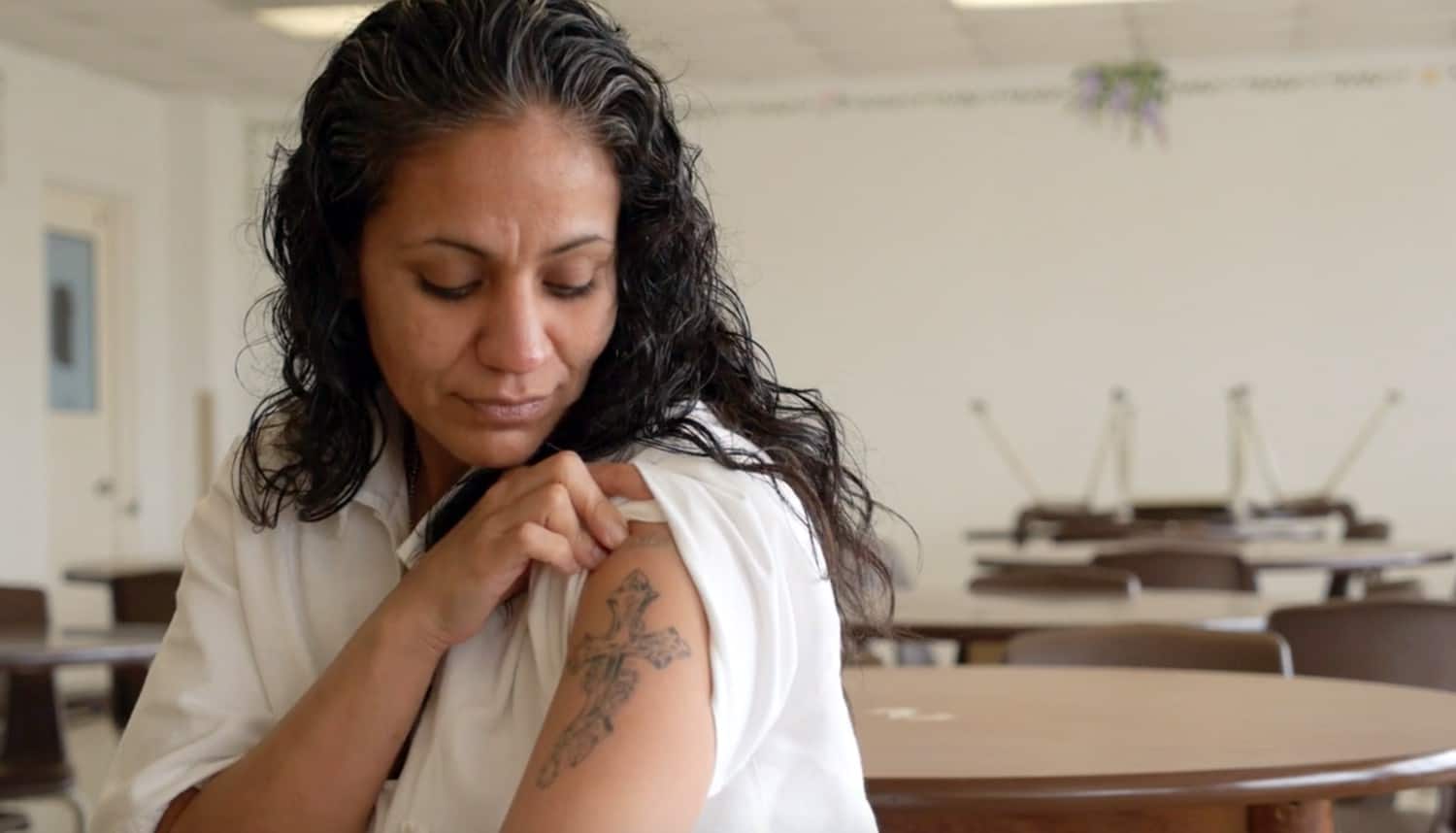Southwest of Salem: The Story of The San Antonio Four shares the tragic story of four friends who were jailed due to an unjust trial, where homophobic judgment trumped evidence.
We asked Director Deborah S. Esquenazi how she originally discovered the case involving Elizabeth Ramirez, Cassandra Rivera, Kristie Mayhugh and Anna Vaquez, jailed for a gang rape of Elizabeth’s two nieces, and why she was compelled to make this film. From her first prison visit to how the four women have forever altered her perspective on life, get to know the story of The San Antonio Four.
How did you first hear about this story?
I learned about the San Antonio Four case from my mentor, veteran journalist Debbie Nathan, who at the time was the board president of the National Centre for Reason & Justice. NCRJ represents many high-profile innocence cases, like the San Antonio Four case and the Jesse Friedman case (which ultimately became the acclaimed documentary, Capturing the Friedmans by The Jinx director, Andrew Jarecki). I also read about the women’s story in the San Antonio Express-News when reporter Michelle Mondo outlined the bizarre allegations waged against the four defendants. At first I thought I’d pursue this as a radio story for my local public radio bureau, but I had trouble convincing editors to take it on. Then a few months later Debbie Nathan sent me a VHS tape recorded by the women in the late 90s; it was the contents of this tape that ultimately made me realize there was a film in there. This was heart-wrenching and provocative imagery shot just before the women turned themselves in to authorities to begin their prison sentences.
Can you describe the first time you visited the prison to meet with your subjects?
My first visit to the prison was in 2012, and I had already studied the discovery material and met with attorneys at the Innocence Project of Texas. During my first interview I met with Anna, Liz, and Cassie Rivera, all of whom were housed at a prison called The Hobby Unit—it’s known for being one of the roughest women’s prisons in Texas. All I can say about that first meeting was that it was transformative for me. Much of the early footage you see in the film is actually from that first visit—and the women were startlingly intimate, vulnerable, forthcoming, and generous. You can see on screen how powerful their presence is, and how profound their conviction for telling the truth. Their interviews were as riveting off-screen as it is in the film.
What was the biggest lesson you learned from making this film?
I guess my biggest lesson is more internal, and that’s how to transcend any negativity about what I am capable of achieving if I just follow my heart and gut.
What was the greatest challenge in making Southwest of Salem?
This film took five years to produce, not uncommon in the world of docs. But this film has quite a few plot twists and surprises, so I think the challenge was having the funding and stamina to stay with the filming and the story.
How has your time and interaction with Elizabeth, Cassandra, Kristie and Anna changed you?
They changed my life. I came out of the closet to the women in prison before I came out to my own family! I was in a serious relationship with my now wife when I started re-investigating their case. And even though I studied the extraordinary homophobia that permeated their trials, I still could not bring myself to come out to my own family. But I derived so much courage from my time interviewing them in prison and making strides in the filming that I finally found the strength to come out.
What is the one thing you want audiences to think of/do after leaving the theatre?
Southwest of Salem is fast-paced true-crime film where a lot unfolds in a series of plot twists. My hope is that audiences will absorb the underlying mythologies and intersectional themes that play out underneath it all, particularly the way in which the women were portrayed by overzealous prosecutors and how they were represented during a cultural hysteria—the Satanic sexual abuse panic of the 1980s and 1990s. Of course, more than that, I hope that this massive injustice sticks with people as they leave the theatre and they will be inspired to join our exoneration campaign—details are on our website!
Southwest of Salem: The Story of the San Antonio Four screens Saturday, May 28 at 2:45PM. Get your tickets now.



 Follow Us On Instagram
Follow Us On Instagram
